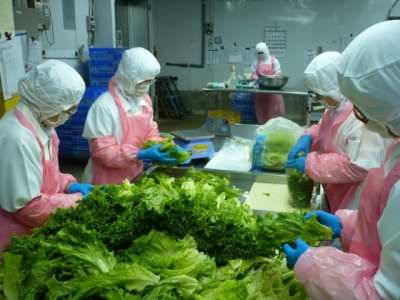The Netherlands, Vietnamese fruit, vegetables gateway to EU

The EU has a stable demand for fruit and vegetables, and the Netherlands is considered a gateway to this market. Vietnamese fruit and vegetable exporters can seek opportunities to penetrate the EU market via the Netherlands.
Vietnamese fruit and vegetables have been exported to more than 60 countries and territories
EVFTA export boost
In recent years, Vietnam has gradually become a major supplier of fruit and vegetables for the world market in general and the EU in particular, meeting consumer demand for imported fruit, especially special kinds of fruit, organic fruit of high nutritional value, dietary supplements, and instant foods. Vietnam ranks fifth among Asian countries in terms of fruit and vegetable production, and Vietnamese fruit and vegetables have been exported to more than 60 countries and territories.
However, due to Covid-19 impact, Vietnam has faced numerous difficulties in exporting fruit and vegetables. According to the Ministry of Industry and Trade, in the first eight months of this year, fruit and vegetable exports reached an estimated US$2.26 billion, down 11.3 percent compared with the same period in 2019. The EU-Vietnam Free Trade Agreement (EVFTA) that took effect on August 1 has already had an immediate impact on fruit and vegetable exports to the EU - Vietnam exported an estimated US$14.7 million worth of fruit and vegetables to the EU in August, an increase of 25.2 percent compared with July.
Mathijs van den Broek, board member of the Dutch Business Association in Vietnam, said the EU market has a stable demand for fruit and vegetables, accounting for 45 percent of total value of global trade in these products. For its large size and seasonal demand, the EU is an attractive market for suppliers in developing countries.
However, EU importers often look for reliable suppliers in strategic regions to enable fruit and vegetable supply for consumers at all times of the year. “Tropical and new kinds of fruit will attract EU consumers. This will be the advantage of exporters from countries with tropical climates, including Vietnam,” Mathijs van den Broek added.
The Netherlands has for long been considered a gateway and major entrepot to the EU market. Vietnamese Commercial Counselor in the Netherlands Nguyen Hai Tinh said the Netherlands is the largest importer of Vietnamese fruit and vegetables in the EU. Currently, more than 20 percent of fresh fruit and vegetables supplied by developing countries to Europe enter the EU via the Netherlands. From the Rotterdam Port, Dutch and international traders distribute products to various European countries.
Safe production is compulsory
Despite the abundance of opportunities for penetration into the EU market via the Netherlands, Vietnamese products still account for a mere 0.08 percent of fruit and vegetable imports by the EU. In this group of goods, fruit tops the list in terms of export value. Key fruit exports to the EU include pineapple, dragon fruit, copra, rambutan and mango.
Vu Ba Phu, Director of the Vietnam Trade Promotion Agency under the Ministry of Industry and Trade, said the EU is a discerning market with very strict requirements and technical barriers in terms of residue of plant protection products and prohibited pesticides. “Fruit and vegetable exports to the EU will be rejected if violating food safety and hygiene regulations. If this happens, it will cause losses for not only businesses but also the entire Vietnamese fruit and vegetable sector. Therefore, safe production is compulsory,” Vu Ba Phu emphasized.
Moreover, deep processing will help fully exploit the value of fruit and vegetables, increasing farmer incomes. In recent years, trade promotion activities and technical assistance have changed the way importers, wholesalers and retailers as well as residents in various European areas looked at the modernization and renovation of the Vietnamese fruit and vegetable sector. Vietnamese fruit and vegetable businesses are increasingly able to meet the strict requirements of EU partners and supply safe products of high added value and high quality to leading importers and high-grade distribution channels of different European countries.
Related news
 Sugar industry is concerned about unfair competition
Sugar industry is concerned about unfair competition Farmers have stopped producing sugarcane, causing many factories to close due to lack of raw materials, which is the current situation of the sugar industry
 Fruit, vegetable exports expected to revive after 9-month slump
Fruit, vegetable exports expected to revive after 9-month slump Fruit and vegetable exports are showing signs of recovery after a slump in the first three quarters of the year.
 Viet Nam fruit, vegetable exporters need to be on top of Chinese policy changes: conference
Viet Nam fruit, vegetable exporters need to be on top of Chinese policy changes: conference With China making regulations for fruit and vegetable imports more stringent, Vietnamese businesses need to pay close attention to the changes